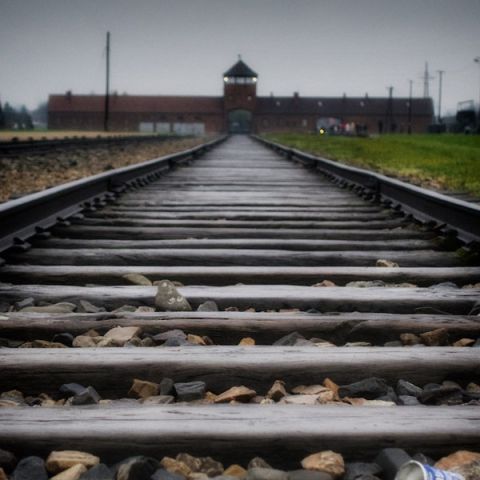
Filter by content type:
Filter by date:
Peter Braunfeld recounts experiencing anti-Semitism as a child in Vienna after Austria was annexed by Nazi Germany. This testimony clip is featured in the new IWitness activity, A thing of the Past? Anti-Semitism Past and Present.
Seventy years after the camp was liberated, institute helps bring survivors, teachers and others to milestone event.

Julia Lentini describes the events on March 8, 1943, when the town mayor told her father that Julia's family would be deported from their home to Frankfurt for a few days. The family was deported to the Auschwitz concentration and extermination camp. This testimony clip is featured in the new IWitness activity: The Nazi Genocide Against the Rome and Sinti (Gypsy) People.
The Holocaust collection in USC Shoah Foundation's Visual History Archive contains over 59,702 testimonies; however, only a mere six of those testimonies are from survivors who were persecuted by the Nazis for being gay: one in English, three in German, one in French, and one in Dutch. There are other gay survivors we have in the Archive, but they were persecuted by the Nazis for the greater sin of being Jewish; Gad Beck being one of them.
Pagination
- Previous page
- Page 6
- Next page